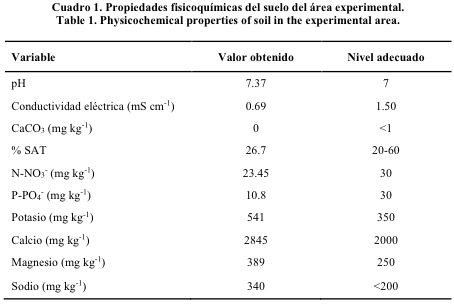Influence of three irrigation regimes on agronomic quality of cultivated rye in the coast of Hermosillo, Sonora, Mexico
DOI:
https://doi.org/10.28940/terra.v40i0.1073Keywords:
adaptation, climate change, water stress in cereals, yields, Secale cerealeAbstract
Cereals are a fundamental part of the world diet; therefore, their adaptation in different environments due to climate change should be achieved. Studying the modif ications that may occur during plant development is essential, as well as in the quality of the harvested product. Thus the objective of this research is to analyze the effect of water stress on development, growth, production, and agronomic quality of rye crop and harvested grain. For sowing, a completely randomized one-way experimental design was used, where the treatments consisted of three different soil moisture regimes. The variables evaluated at the time of harvest were plant height and number of spikes per linear meter. After harvest, the variables evaluated were spike size and the number of grains it contained, as well as size and color of the grain, weight of 1000 grains, test weight, yield, ash and protein content. An analysis of variance and Tukey’s comparison of means test (P < 0.05) were performed for ash and protein content, and Duncan (P < 0.05 and P ≤ 0.0001) for the rest of the determinations. The results showed that less irrigation did not negatively affect the crop with an appropriate agronomic development, highlighting an increase in the number and size of spikes, an increase in the number of grains per spike, as well as a high yield and protein content of the grain. These values were higher than those reported in previous research, which conf irms that even though rye is considered a winter cereal, it managed to acclimate to soil conditions, decreased water, and high temperatures in the coastal area of Hermosillo, Sonora, México.
Downloads
Publication Facts
Reviewer profiles N/A
Author statements
- Academic society
- Terra Latinoamericana
- Publisher
- Mexican Society of Soil Science, C.A.

















